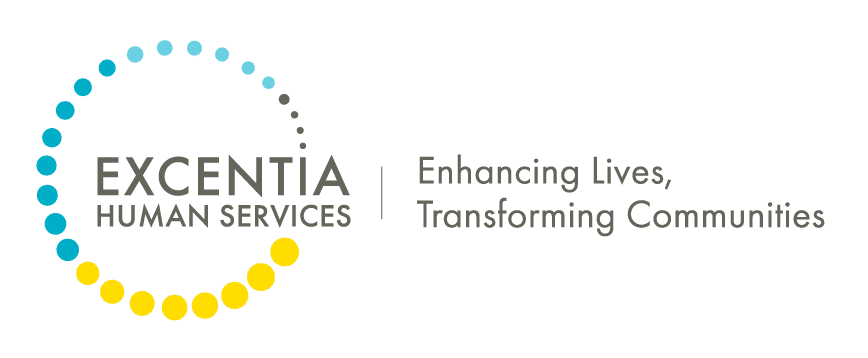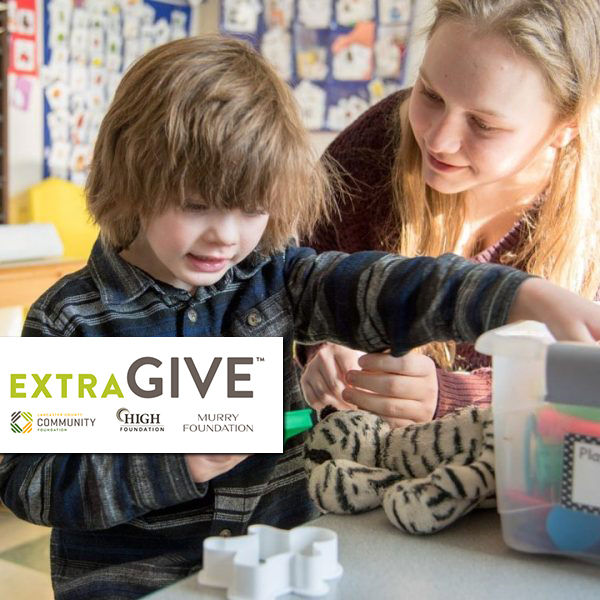By: Elizabeth Winters
October is AAC Awareness Month. A time to recognize the many ways people communicate and the tools that help make it possible. At Excentia Human Services, the Communication Services Program supports individuals who use augmentative and alternative communication (AAC) to express themselves, connect with others, and live more independently.
Vanessa, 44, is one of those individuals. She uses a high-tech AAC device with head-tracking technology, activated by a small infrared sticker on her glasses. The device allows her to communicate using subtle head movements. This method requires significant physical effort but gives her the most accurate and reliable access to her voice.

Before receiving her device, Vanessa experienced frustration and behavioral challenges. Today, her AAC helps her ask questions, express preferences, and build relationships with those around her. One of her most-used phrases is, “Will you please stop and listen to me?”
Vanessa has received services since 2014. While in day programming she enjoys watching drama shows like “Dance Moms” and “The Addams Family,” going to the library at least once a week, and chatting with staff—often joking and asking where her favorite team members are when they’re not around.
She’s polite and expressive, frequently using her device to say, “thank you.” Her favorite color is yellow, and she enjoys sweet treats like ice cream and pie. For breakfast, she often asks for a banana, yogurt, and oatmeal with peanut butter. She also loves ginger ale and asking for her books.

Vanessa is one of nearly 80 people supported through our Communication Services Program. “She understands everything happening around her,” said Heather, the speech-language pathologist who leads the AAC program. “Her device gives her the ability to express real feelings, preferences, and humor—things that would otherwise be locked inside.”
Behind every device is a thoughtful process led by the Communication team. They work directly with each person – conducting evaluations, trialing devices, and providing training – to ensure they receive not just any tool, but the right one, with the support to use it confidently. This process includes testing, collaboration with house and day program staff, and navigating waiver funds and insurance.
People use a range of AAC—from low-tech picture boards to high-tech speech-generating devices. And the need continues to grow. As this need for AAC continues to grow, so does the waitlist. Currently, Heather leads the program on her own—making Excentia Human Services one of the only providers in Lancaster County offering comprehensive AAC services across the lifespan. To expand access and reach more people waiting for support, we’re actively seeking communication specialists to join our team. With more hands and hearts, we can help more people find their voice.
AAC is more than a tool – it’s a lifeline. It empowers people to express themselves, make choices, and connect with the world around them. “These tools give people independence, agency, and the power to connect” Heather said. “My hope is that no matter where someone is when I meet them, we’re able to grow their vocabulary and independence—even a smidge—then we’re doing what we need to do.”
You can help us continue this work. Whether it’s supporting our communication program, funding devices, or simply sharing stories like Vanessa’s, your involvement makes a difference.
Let’s make sure every voice is heard

